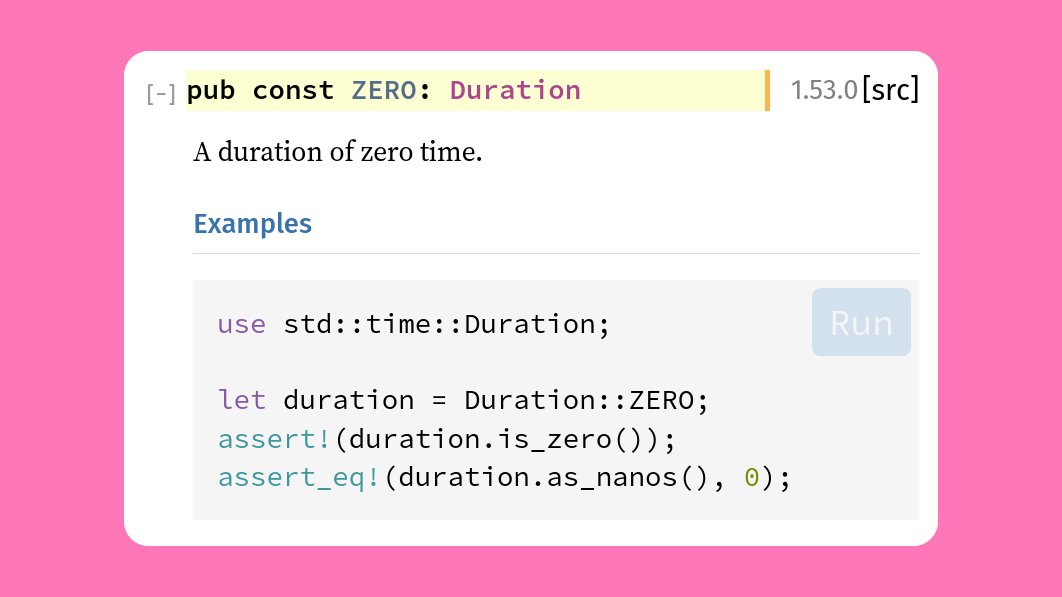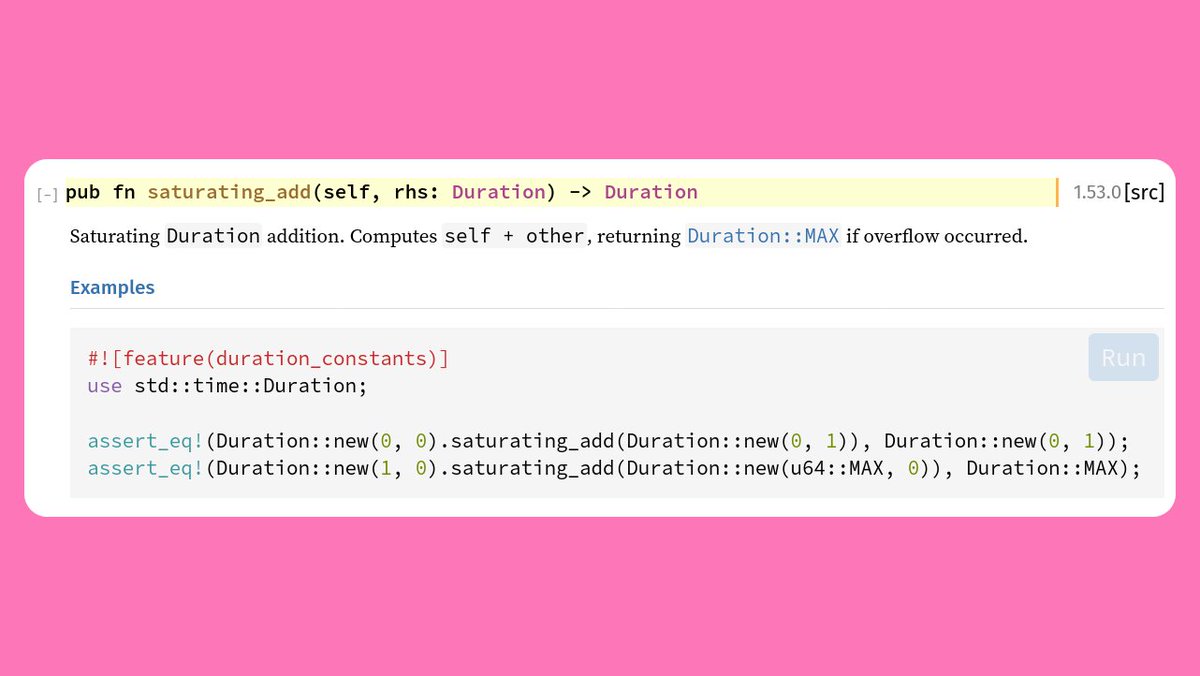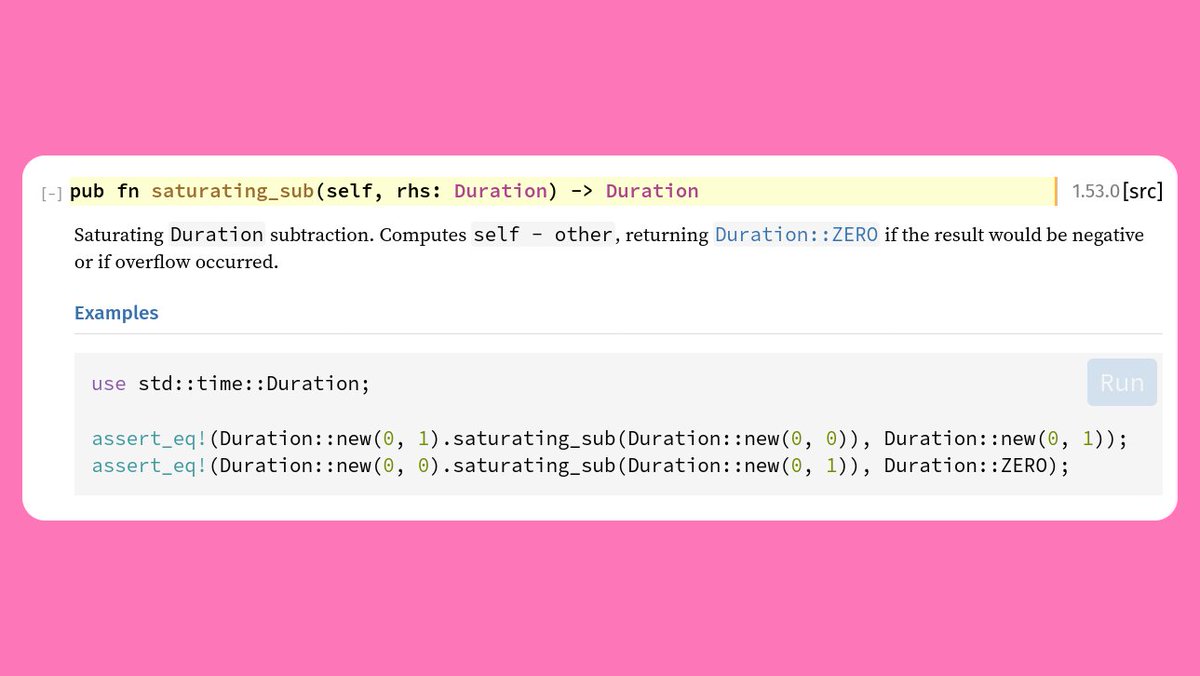
The new stable version of @rustlang, Rust 1.52, was released just now! 🦀🎉
This release contains quite a few new small but significant features.
A thread.
1/10
blog.rust-lang.org/2021/05/06/Rus…
This release contains quite a few new small but significant features.
A thread.
1/10
blog.rust-lang.org/2021/05/06/Rus…
My favourite new addition is `str::split_once`.
We already had str::split and str::splitn, which result in an iterator. But when parsing something simple, you often want to split something exactly once. For example, to parse a string containing `key=value`.
2/10

We already had str::split and str::splitn, which result in an iterator. But when parsing something simple, you often want to split something exactly once. For example, to parse a string containing `key=value`.
2/10
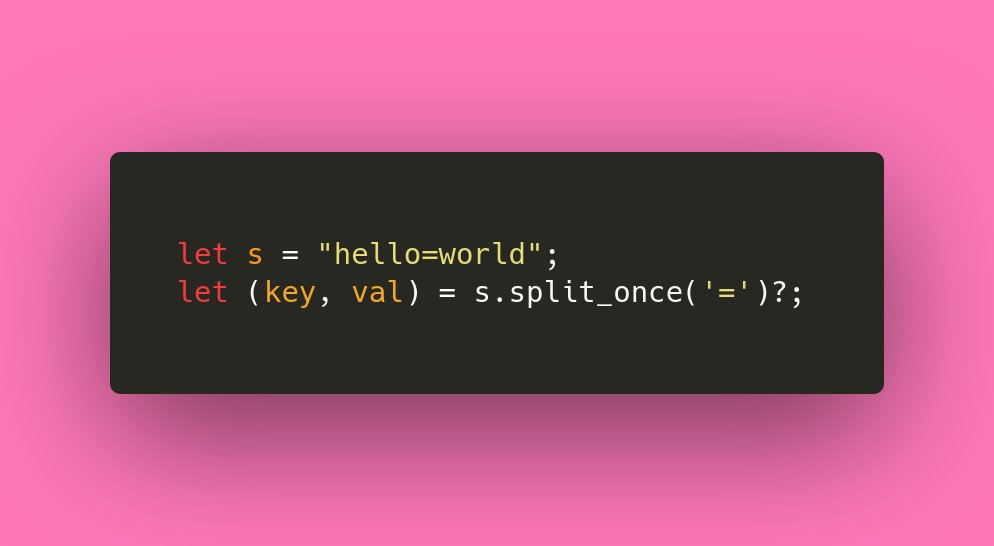
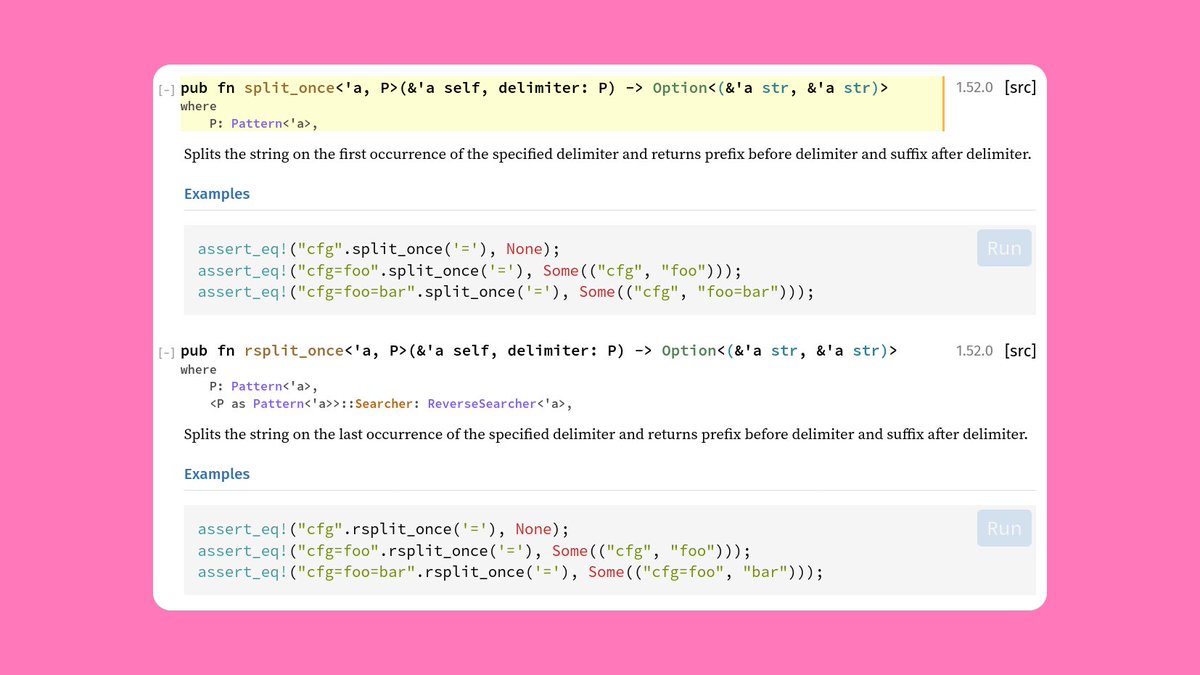
Another one I'm excited about is one of the first features I worked on: std::fmt::Arguments::as_str()
fmt::Arguments is returned by format_args!(), and appears in macros that support formatting.
as_str() allows handling the literal case without special-casing your macro:
3/10

fmt::Arguments is returned by format_args!(), and appears in macros that support formatting.
as_str() allows handling the literal case without special-casing your macro:
3/10
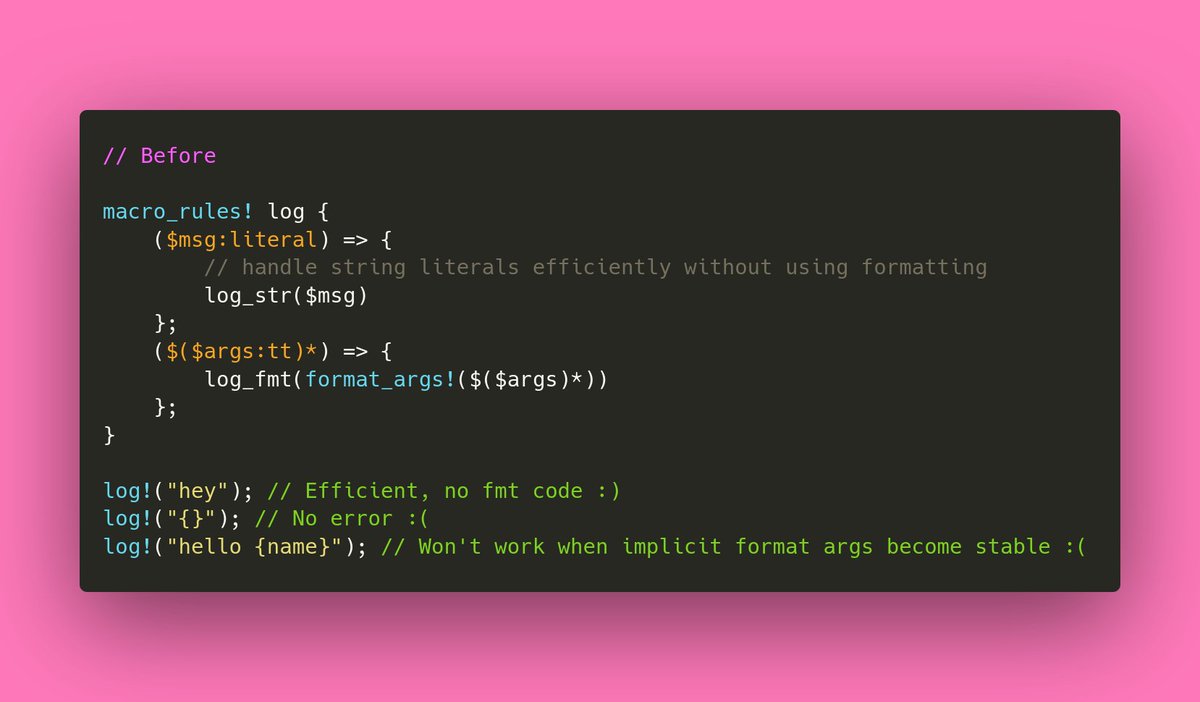
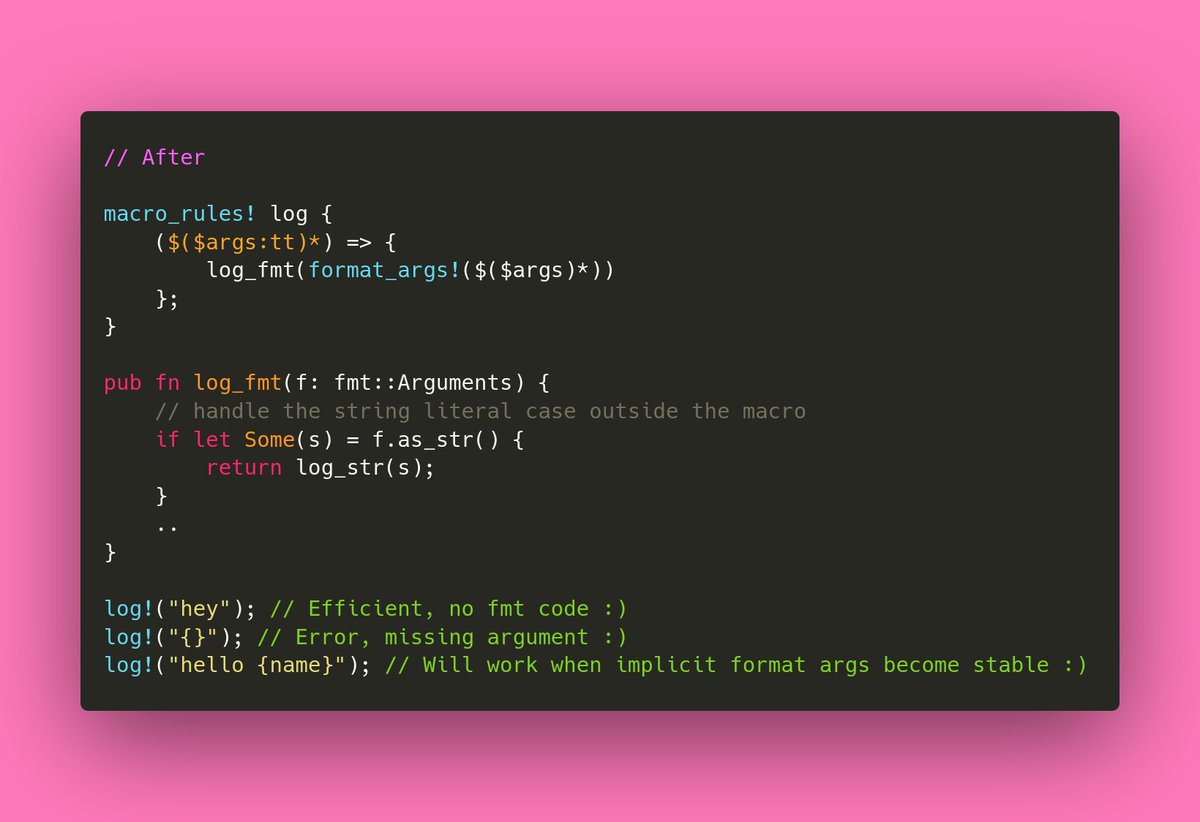
Next: #[deny(unsafe_op_in_unsafe_fn)]
This forces you to write `unsafe` to call unsafe functions, even when inside an unsafe fn. Most unsafe functions have a mostly (or fully) safe implementation, so separating 'unsafe to call' from 'unsafe implementation' is often useful.
4/10![#![deny(unsafe_op_in_unsafe_fn)] pub unsafe fn dangerous()](/images/1px.png)
This forces you to write `unsafe` to call unsafe functions, even when inside an unsafe fn. Most unsafe functions have a mostly (or fully) safe implementation, so separating 'unsafe to call' from 'unsafe implementation' is often useful.
4/10
![#![deny(unsafe_op_in_unsafe_fn)] pub unsafe fn dangerous()](https://pbs.twimg.com/media/E0uCDJ_XEAU2O4l.jpg)
The casting operator (`as`) already allowed converting from a reference to an array to a pointer to the first element (from &[T; N] to *const T). Starting in Rust 1.52, this also works for the mutable case (from &mut [T; N] to *mut T):
5/10![let mut array = [1, 2, 3]; let ptr = &mut array as *](/images/1px.png)
5/10
![let mut array = [1, 2, 3]; let ptr = &mut array as *](https://pbs.twimg.com/media/E0uDPkhWYAIYsqQ.jpg)
Another important library feature: slice::partition_point.
This performs a binary search through a slice, given a (boolean) predicate.
With `<= x` or `< x` as the predicate, this is equivalent to the `upper_bound` and `lower_bound` algorithms of the C++ standard library.
6/10
This performs a binary search through a slice, given a (boolean) predicate.
With `<= x` or `< x` as the predicate, this is equivalent to the `upper_bound` and `lower_bound` algorithms of the C++ standard library.
6/10
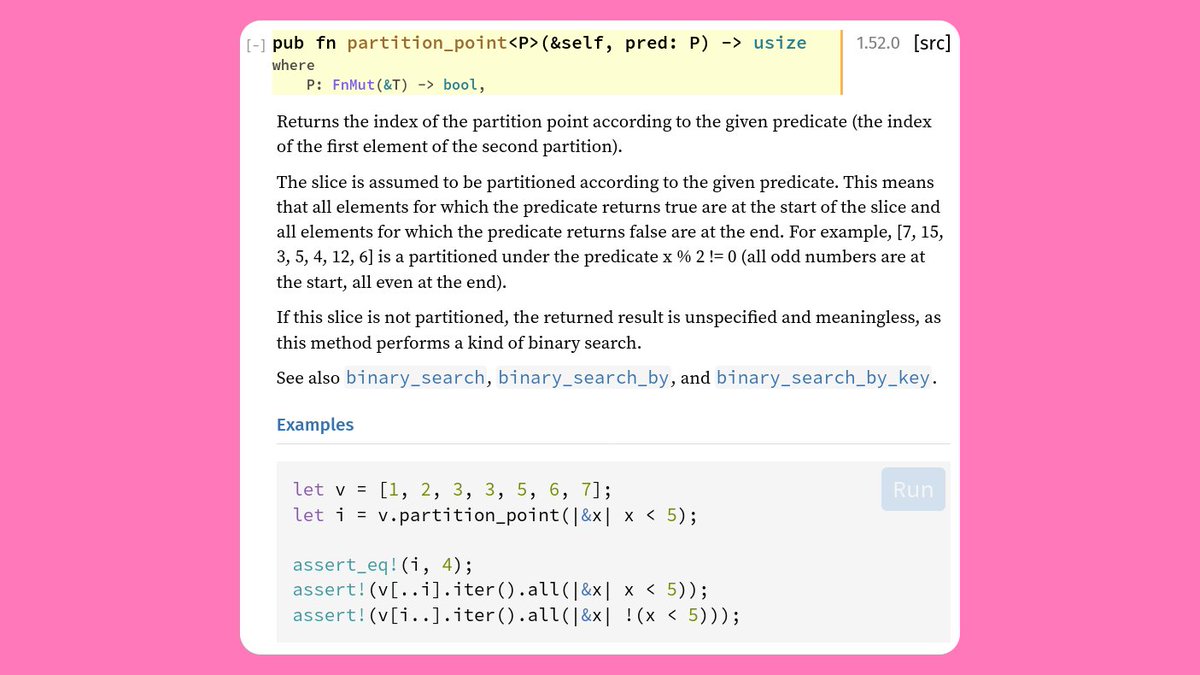
If you like reference-counted errors, Rust 1.52 now implements the Error trait for all Arc<T> for which T itself implements Error:
7/10
7/10
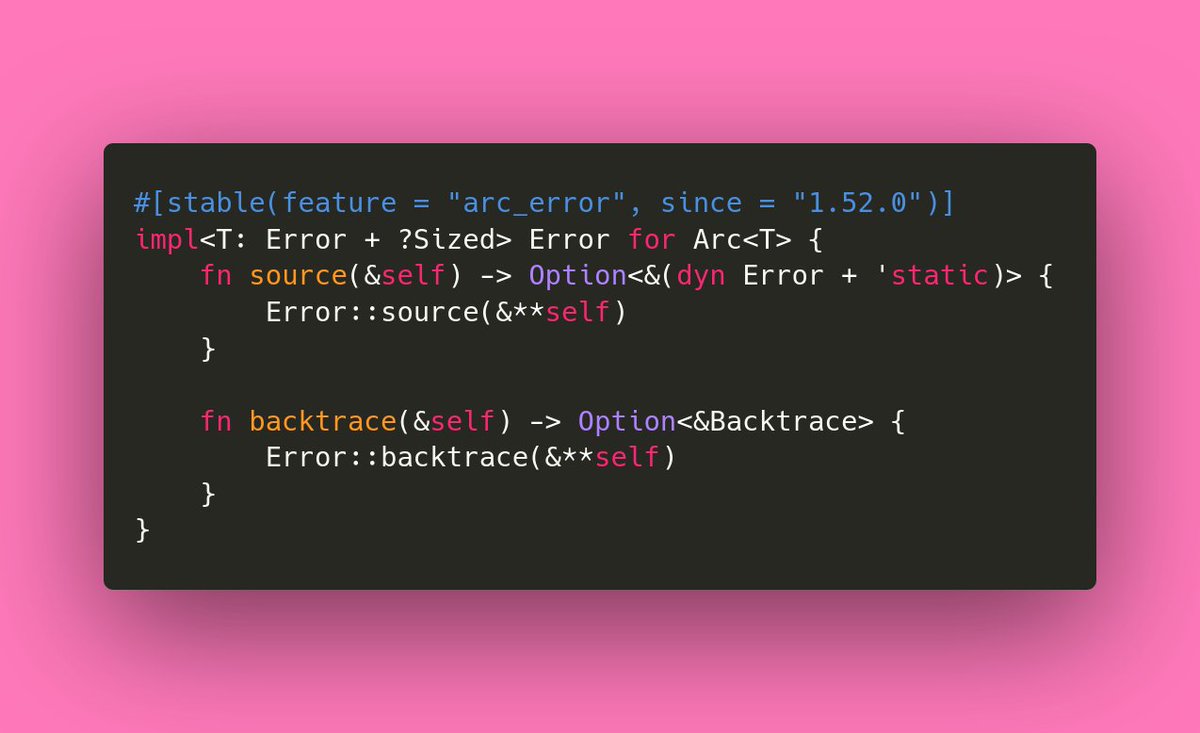
As in most recent Rust releases, more functions are turned into `const fn`s to allow use in compile-time evaluated expressions.
This time it's the ascii upper-/lowercase functions, char::len_utf8 and len_utf16, and all the integer division/remainder functions:
8/10
This time it's the ascii upper-/lowercase functions, char::len_utf8 and len_utf16, and all the integer division/remainder functions:
8/10
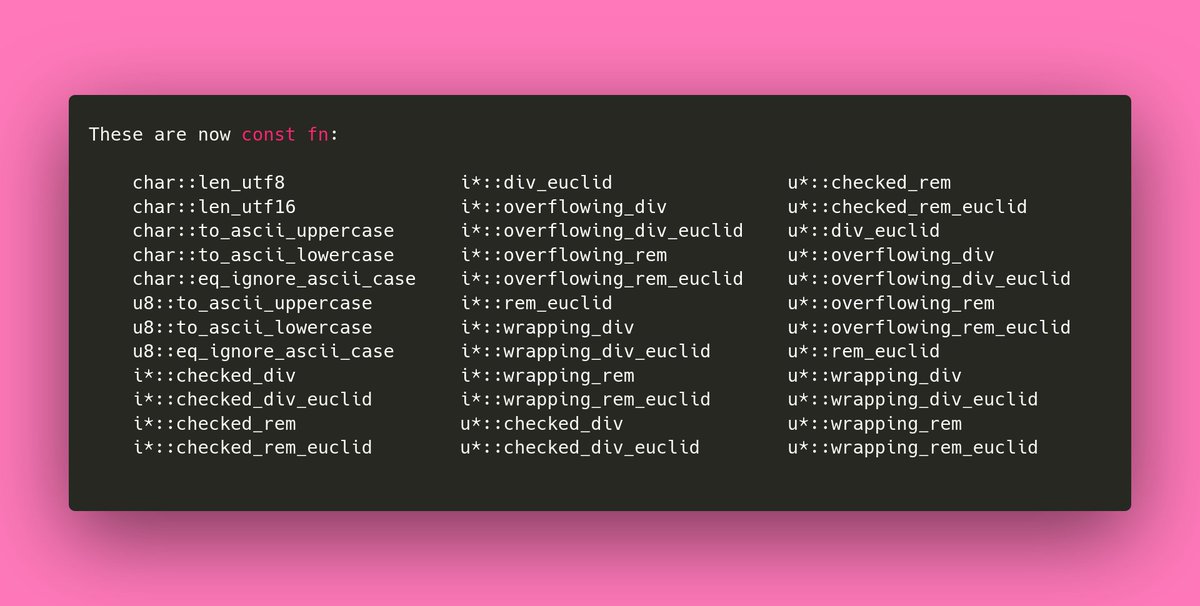
The last new feature I want to highlight is a Rustdoc feature: Task lists.
With the same syntax that's supported by some other markdown variants (e.g. GitHub's), you can now add checked and unchecked checkboxes in your documentation:
9/10

With the same syntax that's supported by some other markdown variants (e.g. GitHub's), you can now add checked and unchecked checkboxes in your documentation:
9/10
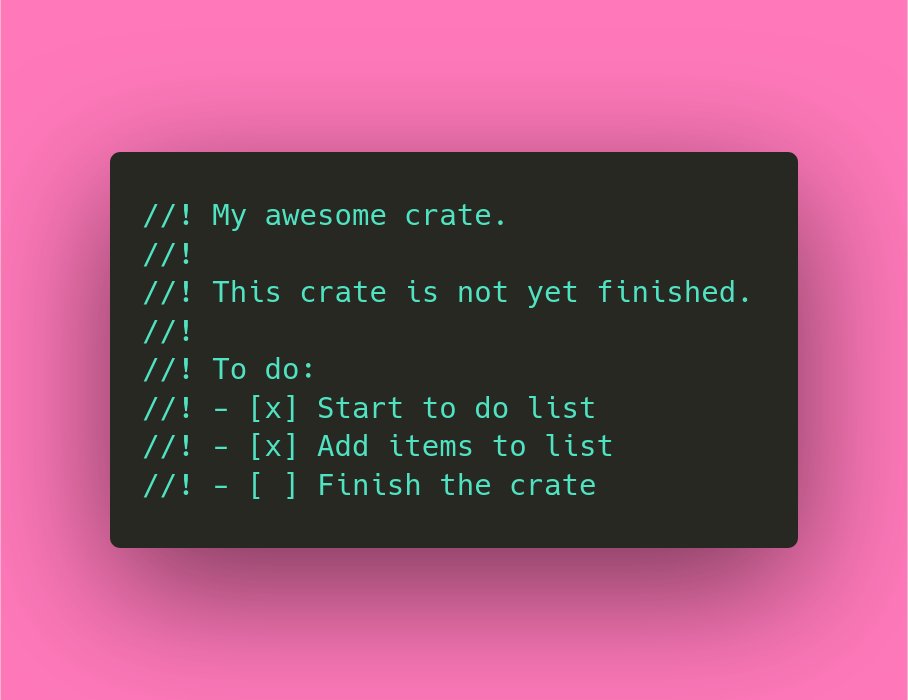
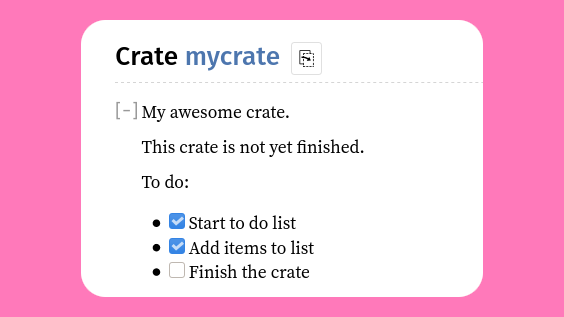
And with that, I'm ending this thread. :)
There's a few more changes and additions, which you can find in the full release notes:
github.com/rust-lang/rust…
10/10
There's a few more changes and additions, which you can find in the full release notes:
github.com/rust-lang/rust…
10/10
• • •
Missing some Tweet in this thread? You can try to
force a refresh


![error[E0277]: `[{integer}; 3]` is not an iterator borrow th](https://pbs.twimg.com/media/EzvpdLjXEAEcNFn.jpg)
![for e in [1, 2, 3] { // Works in 1.53! println!("{}](https://pbs.twimg.com/media/EzvpbjdWUAUb0QG.jpg)
![for e in [1, 2, 3].into_iter() { // Surprise: `e` is a r](https://pbs.twimg.com/media/EzviwSxXoAM8r1J.jpg)
![warning: this method call currently resolves to `<&[T; N] as](https://pbs.twimg.com/media/EzvkI3PXIAMWHQd.jpg)
